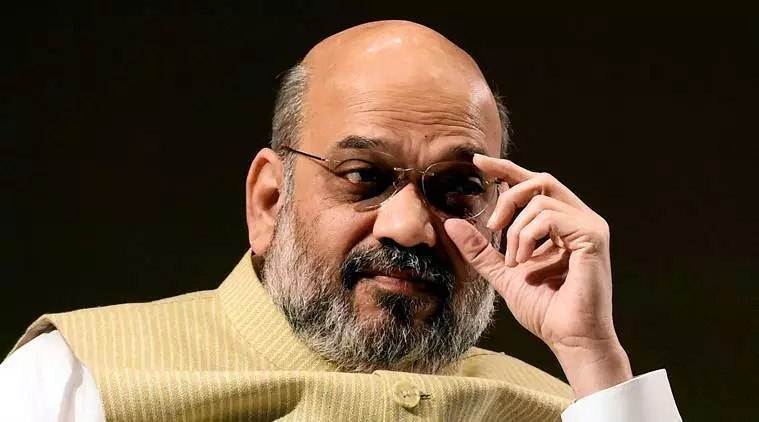 Union Home Minister Amit Shah. (File)
Union Home Minister Amit Shah. (File)
As China “firmly opposed” Home Minister Amit Shah’s visit to Arunachal Pradesh, saying that it “sabotaged political mutual trust”, India hit back and said that objecting to the visit “does not stand to reason and understanding” of the Indian people.
This is at least the third time over the past one year that China has objected to the visit by an Indian leader to Arunachal Pradesh.
The Home Minister is in Arunachal Pradesh to attend the 34th Statehood Day function and launch a number of projects related to industry and roads.
China, which claims Arunachal Pradesh as a part of south Tibet, objected to Shah’s visit to attend the statehood day on Thursday, saying it is “firmly opposed” to his trip as it violated Beijing’s “territorial sovereignty and sabotaged political mutual trust”.
“China’s position on the eastern sector of the China-India boundary, or the southern part of China’s Tibet region, is consistent and clear,” China’s Foreign Ministry spokesman Geng Shuang said at an online media briefing on Thursday while replying to a question.
“The Chinese government has never recognised the so-called ‘Arunachal Pradesh’ and is firmly opposed to the Indian politician’s visit to the southern part of China’s Tibet region as it violated China’s territorial sovereignty, undermined stability of the border area, sabotaged political mutual trust, and violated relevant bilateral agreement,” he said.
“The Chinese side urges the Indian side to stop taking any action that may further complicate the border issue and take concrete actions to uphold peace and tranquillity of the border area,” he said.
Responding to Beijing’s statement, Ministry of External Affairs spokesperson Raveesh Kumar said, “Our position on Arunachal Pradesh is clear and consistent. Arunachal Pradesh is an integral and inalienable part of India. Indian leaders routinely travel to the state of Arunachal Pradesh as they do to any other states of India. Objecting to the visit of Indian leaders to a state of India does not stand to reason and understanding of the Indian people.”
A lot at stake for bilateral relations
By objecting to Home Minister Amit Shah’s visit, Beijing reiterated its position on Arunachal Pradesh for at least the third time in the last one year. China, which usually only objects to the visits, went a step ahead this time and said that it “sabotaged mutual political trust”. Delhi, predictably, retorted sharply. Diplomatic rhetoric aside, both Beijing and Delhi have enough at stake to not let such public contestations affect their bilateral ties.
This is not the first time China has objected to the visits by Indian leaders. Last November, China had objected to the visit of Defence Minister Rajnath Singh to Arunachal Pradesh, saying the Chinese government never acknowledged the Northeastern Indian state, which it claims to be a part of South Tibet. Singh visited Tawang in November 2019 for the Maitree Diwas celebrations to boost civil-military friendship in the region bordering China.
In February last year, China “firmly opposed” Prime Minister Narendra Modi’s visit to Arunachal Pradesh, asserting that it has never recognised the sensitive border state and the Indian leadership should refrain from any action that may “complicate the boundary question”.
Prime Minister Modi had inaugurated and laid foundation stone of projects in Arunachal Pradesh worth over Rs 4,000 crore and said his government was giving a lot of importance to improve connectivity in the border state.
On both these occasions, India had responded and said Arunachal Pradesh is an “integral and inalienable” part of India.